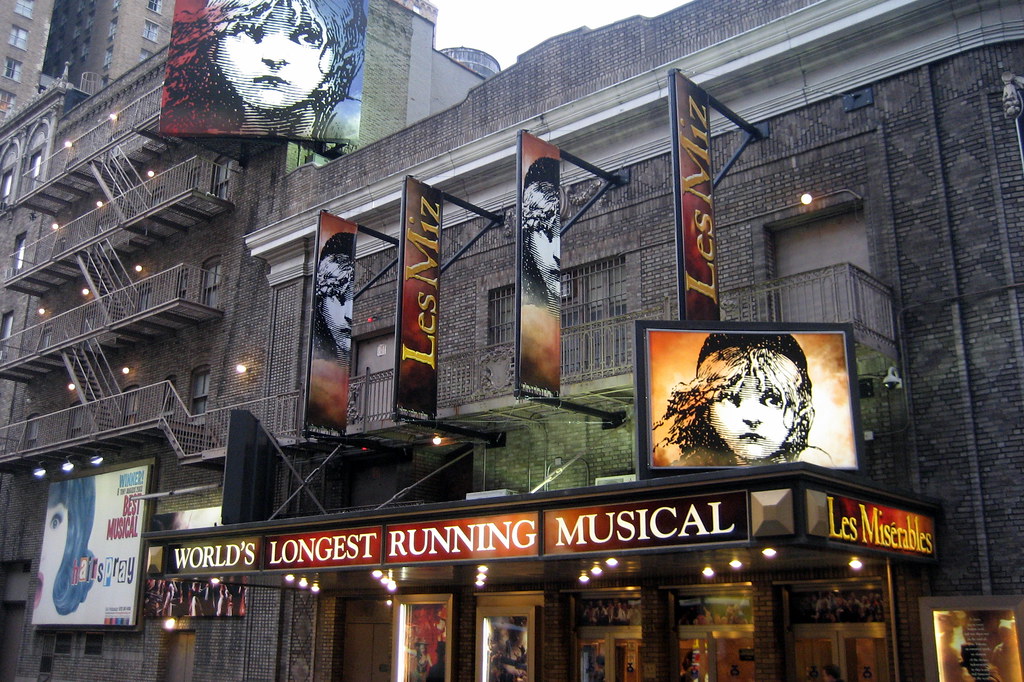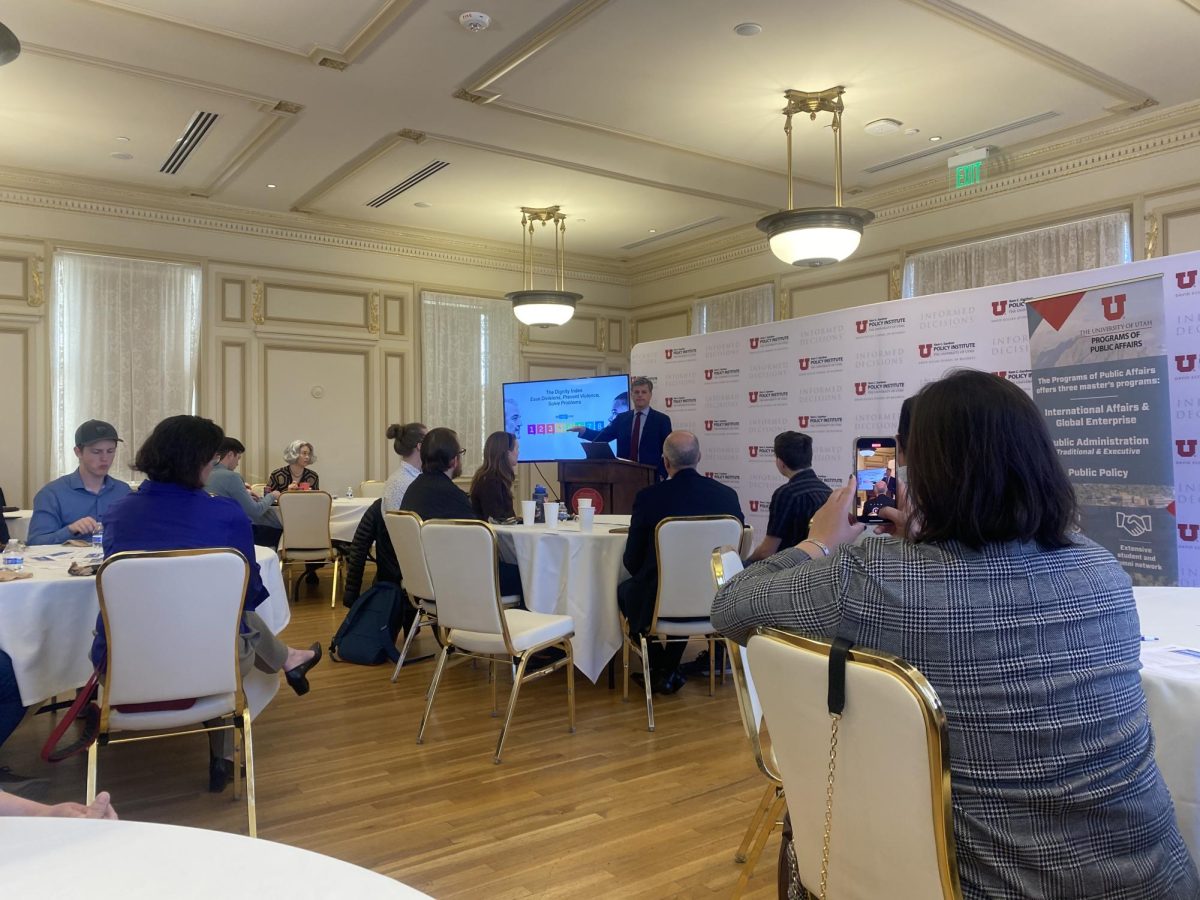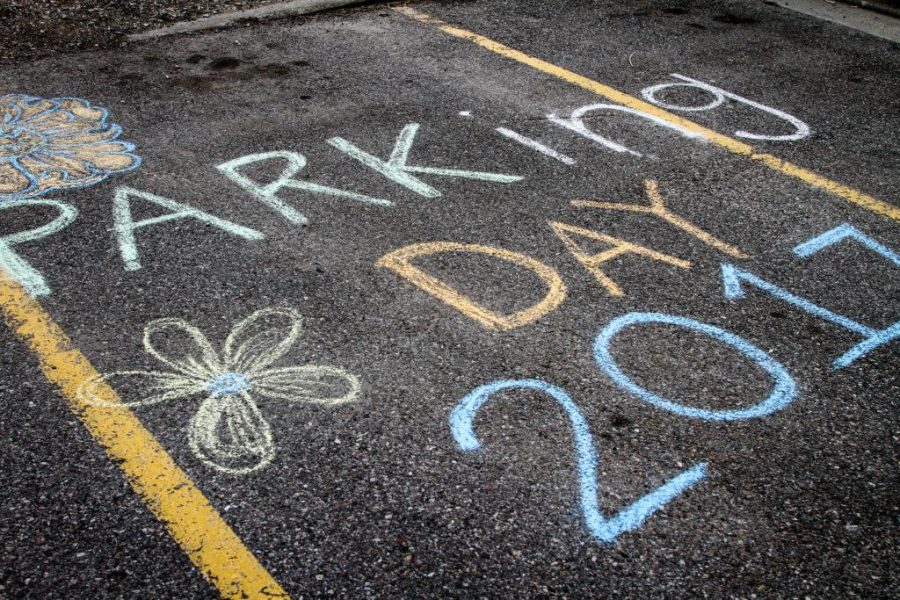As part of Earth Week at the University of Utah, the Student Collective of Allied Planners and Ecologists (SCAPE) recognized PARKing Day in the parking lot west of the Marriott Library. The day is a national attempt to take parking spaces and temporarily return them to public use.
Urban Planners and Ecologists focus on planning areas or even entire cities while taking into account social, economic and ecological forces. Their aim is to design public spaces that maximize usability and sustainability.
Thomas Carter, Urban Ecology student and president of SCAPE at the U, said parking spots are considered poorly used space for ecologic, economic and social reasons.
Ecologically, they “disrupt the natural watershed by displacing large amounts of water that would have gone into replenishing aquifers.” Additionally, “most of the runoff from a parking lot is polluted with car oil, gas and debris.”
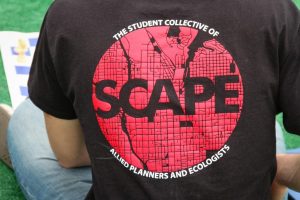
He also said the black pavement of parking lots “traps the sun’s heat, which can [contribute] to an urban heat island effect” — a phenomenon where metropolitan areas are significantly warmer than their surroundings. The effect is known to damage human health as well as that of other organisms living in the area and also changes local climate and weather patterns.
Economically, Carter said “parking lots cater to cars only.” Citing an economic theory called tragedy of the commons, he said that individual users of a shared resource will act according to their own self-interests and, in so doing, those who use the resource will collectively deplete or destroy it.
“Every time one person drives a car, everyone pays,” Carter said. “Some payments are in the form of taxes that are allocated to the fixing of highways and roads. Some payments come after being in a traffic accident or experiencing the negative side effects of living next to a busy road, like asthma.”
Parking lots also result in a loss of social space.
“Large tracts of land covered with parking in front of big box stores are followed by car-oriented development such as fast food restaurants or other stores that only serve single purposes without a place for pedestrians to socialize,” said Carter.
Browne Sebright, a senior in Urban Ecology said that parking lots are commonly inefficient due to legal mandates.
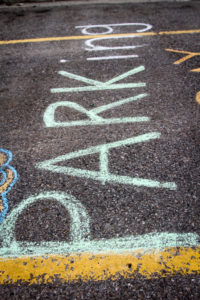
According to him, “Virtually all the parking you see in a city is required because of a section of city code.” He said certain types of businesses or buildings are required to have a specified number of parking spots. When parking is shared between several businesses, the problem multiplies.
“In Salt Lake City, a movie theater is required by law to have one parking space for every four seats,” explained Sebright. “And if it has a McDonald’s in front of it, that McDonald’s has to have five parking spots per cashier. And then a retail store has to have two parking spots per 1,000 square feet of retail space, but the McDonald’s only really uses that much parking twice a day, around breakfast and lunch. The movie theater really only uses all of its parking a few times a week, during Friday and Saturday nights. The retail store only uses all of its parking once a day, around 6 p.m. when everyone is getting off work.”
Even if the businesses share their parking communally, parking space requirements wouldn’t decrease. Sebright said this results in as much of half of the parking lot going unused at any given time. According to Sebright, this hurts the public, because “parking is really expensive to make. An average parking spot costs something like $4,500 to make. When hundreds of stalls go unused, the person who has to pay for that is the consumer. Excess parking, at the end of the day, costs the person who never uses it.”
He noted that reducing parking requirements is very politically unpopular, though “urban planners are almost universally in favor of eliminating minimum parking requirements in favor of market-based analysis of supply and demand.” Sebright said that not only do parking lots have negative ecological and social impacts, they also contribute to rising prices.
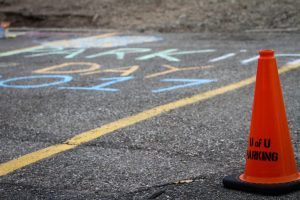
On national PARKing Day, spots are temporarily returned to public use when they are transformed into parks farms, ecology demonstrations, political spaces, bicycle repair or free pop-up health clinics. National organizers encourage local groups to identify needs in the community, and use the temporary spaces to address them.
“PARKing Day is all about tactical urbanism” — temporary, inexpensive attempts to make an urban space more liveable or enjoyable — “as we attempt to reserve space for pedestrians that was once reserved for cars,” said Carter.
SCAPE’s goal with PARKing day at the U, according to Carter, is to get “people to think about their local ecology and how it can all be changed to provide better public space.” They also aim to “evoke ideas for more sustainable land use practices in the future.”
Carter said, “Placing pedestrians in a space normally occupied by a car gets people thinking about how much we still cater to the car in modern planning practices. It’s a friendly reminder to put people first.”
@EliseAbril














